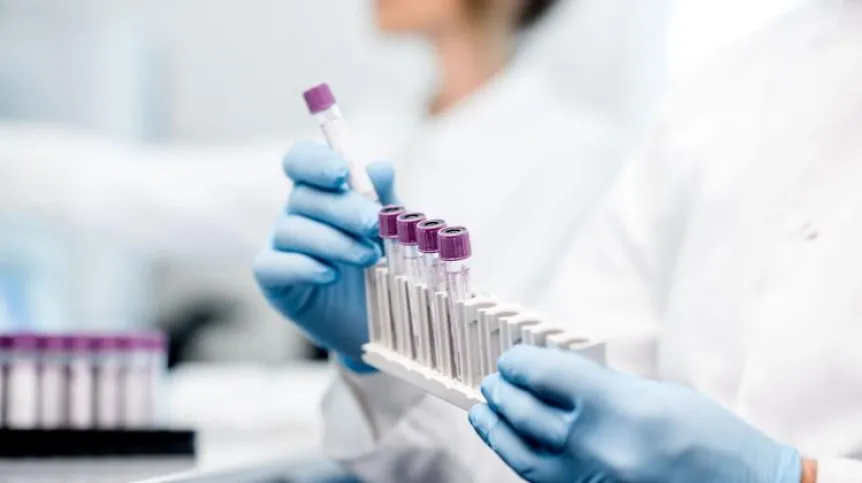
Research to determine whether intestinal microbiome may affect the risk of coronavirus infection and the course of COVID-19 will soon begin, as mass recruitment of sufferers for the world's first such clinical trial continues.
Over 360 people will take part in the clinical trial, with half of them receiving capsules containing only placebo (without the active substance), and the rest receiving capsules with intestinal bacteria from healthy people. In this way, new and normal intestinal microbiota will be transplanted. All participants will also be provided with basic treatment for COVID-19 disease.
Dr. Jarosław Biliński from the Department of Hematology, Transplantology and Internal Diseases of the Medical University of Warsaw said: “We are currently recruiting centres, in which the research will be conducted. We want as many patients as possible to benefit from this therapy in the shortest possible time. I believe we can conclude the recruitment by the end of this year, and we will start treatment in 2021.”
Experts hope that the correct intestinal microbiota obtained from a healthy donor will inhibit the inflammatory process by restoring normal interactions with the immune system. Dr. Biliński said: “This is the first such study in the world and it is expected to continue until the end of 2021. I applied for a grant to the Medical Research Agency, which highly rated the application.”
Previous research has shown that gut bacteria constantly communicate with the immune system. If they are abnormal and depleted, then the immune system reduces its antiviral activity. Also, the cells in the lungs (the pulmonary epithelium) produce less substances that directly kill the viruses.
At the beginning of the pandemic, Chinese specialists investigated why some people progressed asymptomatically or mildly, while others quickly developed severe conditions with respiratory failure and required ventilation. They showed that those with more severe course had a depleted gut microbiome and abnormal gut bacteria.
The composition of the intestinal microbiome depends on the diet and weight, lifestyle and possible diseases. All this affects the composition of bacteria, of which there are 100 billion in our bodies, which is ten times more than the cells that make up our bodies.
Biliński said: “These bacteria stimulate the immune system favourably or abnormally. With a poor microbiome, there are more pathogens than normal and beneficial bacteria. Instead of killing the virus, the immune system begins to react incorrectly, for example, it attacks it too strongly, which is also unfavourable and may worsen the patient's condition.”
This effect is called the cytokine storm. Under the influence of infection, cytokines are released, which increase the body's fight against the disease, causing fever and other symptoms of infection, as well as the so-called inflammatory infiltration. “Cells are sent to where the viruses are, but sometimes they are not there anymore, but the immune system still attacks the lungs and contributes to their destruction,” Dr. Biliński said.
One of the reasons for this may be the unfavourable composition of intestinal bacteria. It is therefore suspected that normal bacteria can be used to prevent infections and protect against the severe course of COVID-19 disease.
Professor Jacek Muszyński from the Department of Gastroenterology and Internal Medicine of the Medical University of Warsaw said that in the microbiome about 30 percent of microorganisms do not change, it is a permanent team. He said: “But 70 percent are variable bacteria that are subject to various influences, mainly environmental ones. These are microorganisms that we ingest with food and saliva, but their composition also influenced on the person's age, sex, genome, as well as diet and medications, such as antibiotics.”
According to the expert, there are several microbiomes in our body, the most important is the intestinal microbiome, but there is also the nasopharyngeal microbiome in the oral cavity, where we have about 700 species of bacteria that live with us. There is also a microbiome in the respiratory system, as well as the skin and the genitourinary system. It is even present in the stomach, although there are relatively few bacteria in it, such as Helicobakter pylori, due to the stomach acid that kills microorganisms.
He said: “There is lymph tissue in the intestine that has an important role in immunity. By communicating with the immune system, the intestinal microflora also ensures the production of antibodies in the intestine, which protects us against pathogens.”
PAP - Science in Poland, Zbigniew Wojtasiński
zbw/ ekr/ kap/
tr. RL













